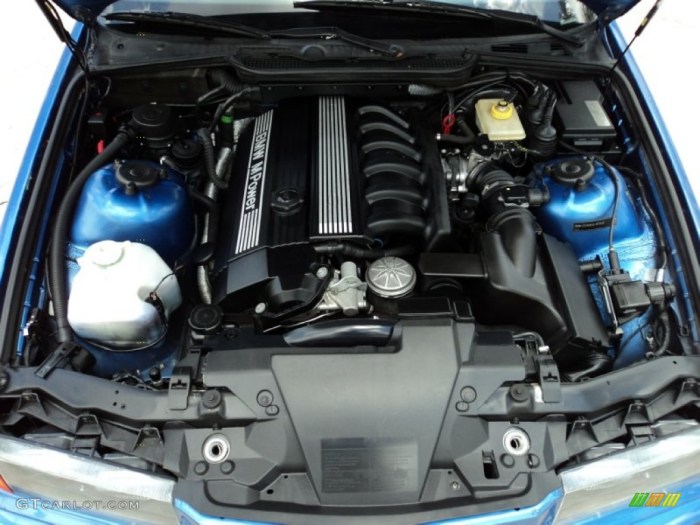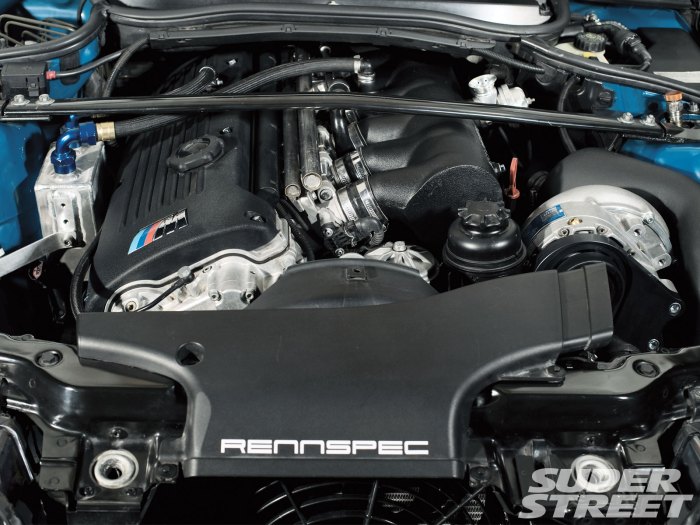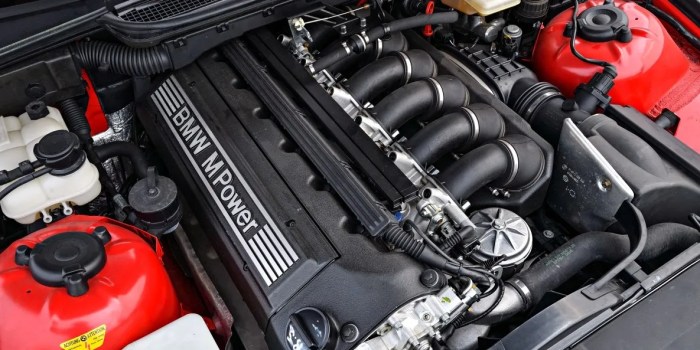BMW M3 engine specs takes center stage as we delve into the storied legacy of one of the most revered engines in the automotive world. The BMW M3 has evolved through various generations, each bringing its own advancements, performance metrics, and technological innovations that have solidified its place in the luxury sports car segment. With a rich history and a drive for excellence, the M3 engine is not just a mechanical component; it represents a commitment to high-performance engineering.
Examine how BMW M2 Coupe can boost performance in your area.
From its inception, the M3 engine has played a pivotal role in defining the dynamics of sports driving. Each new model has pushed the boundaries of performance, showcasing improvements in horsepower, torque, and innovative technologies like turbocharging that enhance driving experience. As we explore the features and specifications of the latest M3 engine, we uncover what makes it a standout in its class.
Browse the multiple elements of Nissan Z Nismo to gain a more broad understanding.
Overview of BMW M3 Engine
The BMW M3 is renowned for its powerful performance and motorsport heritage, with its engine serving as the centerpiece of its exhilarating driving experience. This iconic vehicle has undergone significant evolution since its inception, reflecting changes in automotive technology and performance standards. The M3 engine has cemented its significance in the automotive industry by consistently pushing boundaries, making it a benchmark for performance sedans.
The BMW M3 has seen several generations, each marked by distinct engine developments. The first generation, E30, introduced the world to the high-performance sedan concept, while subsequent models, such as the E36, E46, E90/E92, F80, and the latest G80, have expanded on this legacy with advanced engineering and technology.
Engine Specifications
The latest BMW M3 engine, found in the G80 model, boasts impressive specifications that underline its performance credentials. Key specifications include:
- Engine Type: 3.0-liter BMW M TwinPower Turbo inline 6-cylinder
- Horsepower: 473 hp (standard) / 503 hp (Competition)
- Torque: 406 lb-ft (standard) / 479 lb-ft (Competition)
- Transmission: 6-speed manual or 8-speed automatic
- 0-60 mph: 4.1 seconds (standard) / 3.8 seconds (Competition)
The performance metrics of the M3 are exceptional, with a significant increase in horsepower and torque compared to previous models. For instance, the E92 (2008-2013) M3 had a naturally aspirated V8 engine producing 420 hp, while the F80 (2012-2019) transitioned to a turbocharged inline-6, marking a new era of performance.
Engine Technology

The BMW M3 engine incorporates innovative technologies that enhance both performance and efficiency. Notable features include:
– Turbocharging: The latest models utilize twin-scroll turbochargers that significantly improve power delivery and throttle response. This technology allows for greater efficiency while maintaining high performance levels.
– Lightweight Materials: The M3 engine construction employs aluminum and carbon-fiber-reinforced plastics, which reduce weight without compromising structural integrity, contributing to better handling and acceleration.
These advancements showcase BMW’s commitment to blending performance with technological innovation.
Performance Features

The BMW M3 engine delivers thrilling acceleration capabilities, with the G80 model achieving a 0-60 mph time of just 4.1 seconds, and the Competition variant reaching it in 3.8 seconds. These impressive figures position the M3 among the fastest in its class.
When comparing fuel efficiency ratings, previous generations like the E92 M3 averaged about 13-20 mpg, while the latest G80 model offers improved efficiency, achieving up to 16-25 mpg, thanks in part to its advanced turbocharged engine.
The sound and exhaust note of the BMW M3 are legendary among enthusiasts. The G80 features an aggressive exhaust system that produces a thrilling soundtrack, characterized by deep growls and exhilarating pops during downshifts, enhancing the driving experience.
Engine Maintenance and Reliability
Regular maintenance is crucial for optimizing the performance and longevity of the M3 engine. Recommended procedures include:
- Frequent oil changes, ideally every 5,000 miles or annually.
- Monitoring coolant and fluid levels to prevent overheating.
- Routine inspections of the turbocharging system for potential leaks or issues.
Common issues faced by M3 owners can include turbocharger failures and oil consumption problems. Solutions often involve upgrading to performance parts or following BMW’s recommended service schedule to ensure reliability.
The BMW M3 engine has a reputation for durability, with many owners reporting high mileage without significant issues. This reliability, combined with exceptional performance, solidifies the M3’s status as a premier choice in the luxury performance market.
Aftermarket Modifications
Aftermarket modifications can enhance the performance of the M3 engine significantly. Popular options include:
- Performance tunes that increase horsepower and torque through software adjustments.
- Aftermarket exhaust systems that improve sound and reduce weight.
- Upgraded intercoolers for better cooling and performance consistency.
These modifications can lead to impressive gains in engine specifications, but potential buyers should consider the impact on warranty and reliability. Some modifications may void warranties, so it’s essential for owners to consult with professionals before proceeding.
Comparison with Competitors

In the competitive landscape of luxury sports cars, the BMW M3 engine holds its own against formidable rivals like the Audi RS5 and Mercedes-AMG C63. Key specifications for comparison include:
| Model | Horsepower | Torque | 0-60 mph |
|---|---|---|---|
| BMW M3 G80 | 473 hp / 503 hp | 406 lb-ft / 479 lb-ft | 4.1 / 3.8 sec |
| Audi RS5 | 444 hp | 443 lb-ft | 3.9 sec |
| Mercedes-AMG C63 | 469 hp | 479 lb-ft | 4.1 sec |
This comparison illustrates how the M3 engine stands up to performance benchmarks in its class, showcasing a balance between power and drivability.
Future of BMW M3 Engine, BMW M3 engine specs
The future of the BMW M3 engine is poised for innovation, with trends indicating a shift towards hybrid and electric technologies. As automotive regulations become stricter, BMW is likely to explore hybrid powertrains that combine performance with environmental sustainability.
The potential for electric variations of the M3 engine is also on the horizon, as evidenced by BMW’s commitment to electrification. This may lead to models that maintain performance standards while utilizing advanced battery technologies.
BMW envisions a future where performance is redefined, combining cutting-edge technology with the exhilarating driving experience that the M3 is known for. The company’s focus on sustainability does not compromise the thrill of driving, suggesting an exciting path ahead for M3 enthusiasts.
Final Conclusion: BMW M3 Engine Specs
In conclusion, the BMW M3 engine specs embody a unique blend of power, technology, and reliability that has captivated enthusiasts for decades. As the automotive landscape evolves, so does the M3, promising exciting advancements in performance and potential electric or hybrid variations. Whether you’re a long-time fan or new to the BMW M3 legacy, understanding its engine specifications is essential to appreciating what makes this vehicle a true icon in the luxury sports car arena.